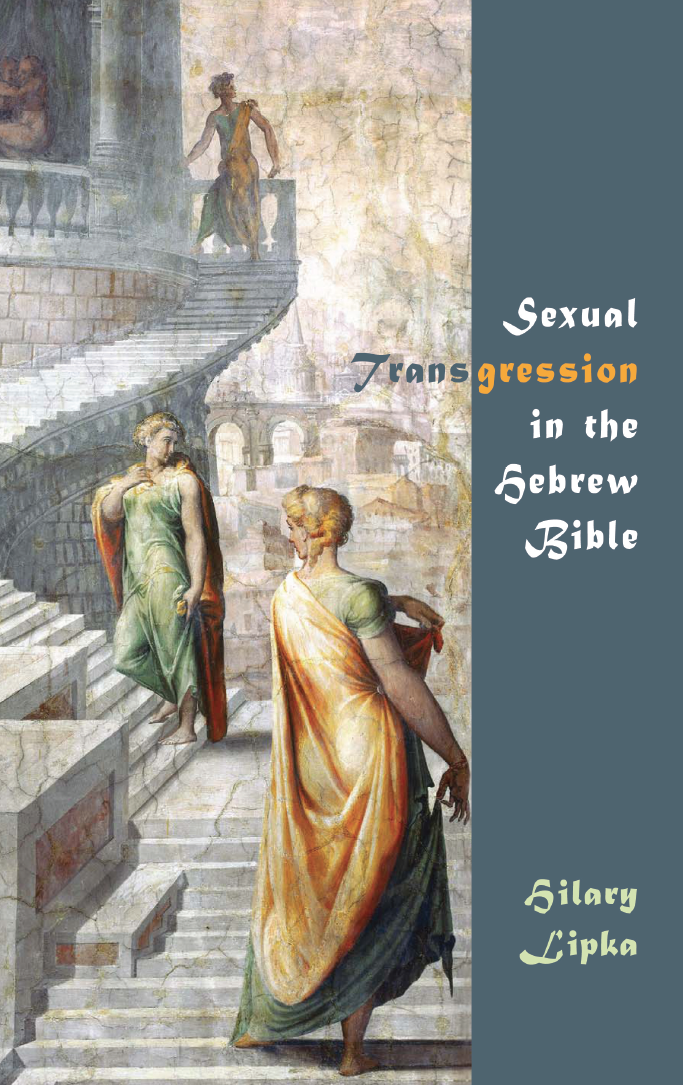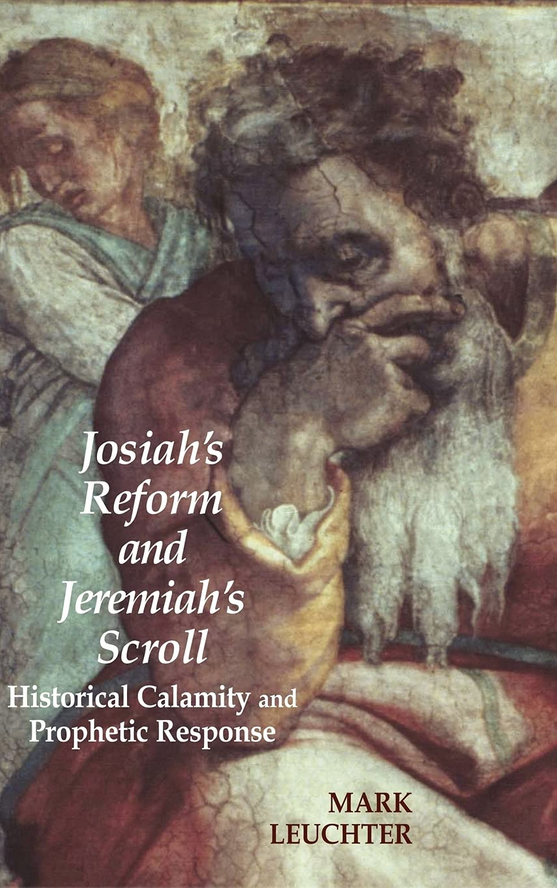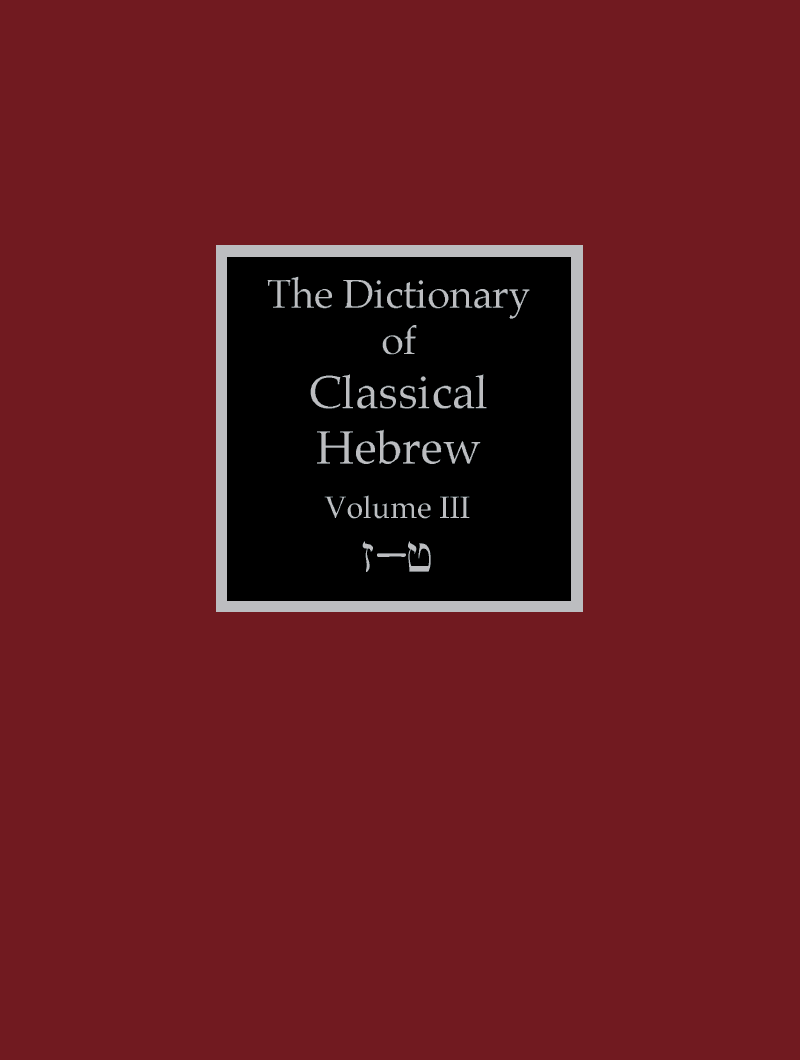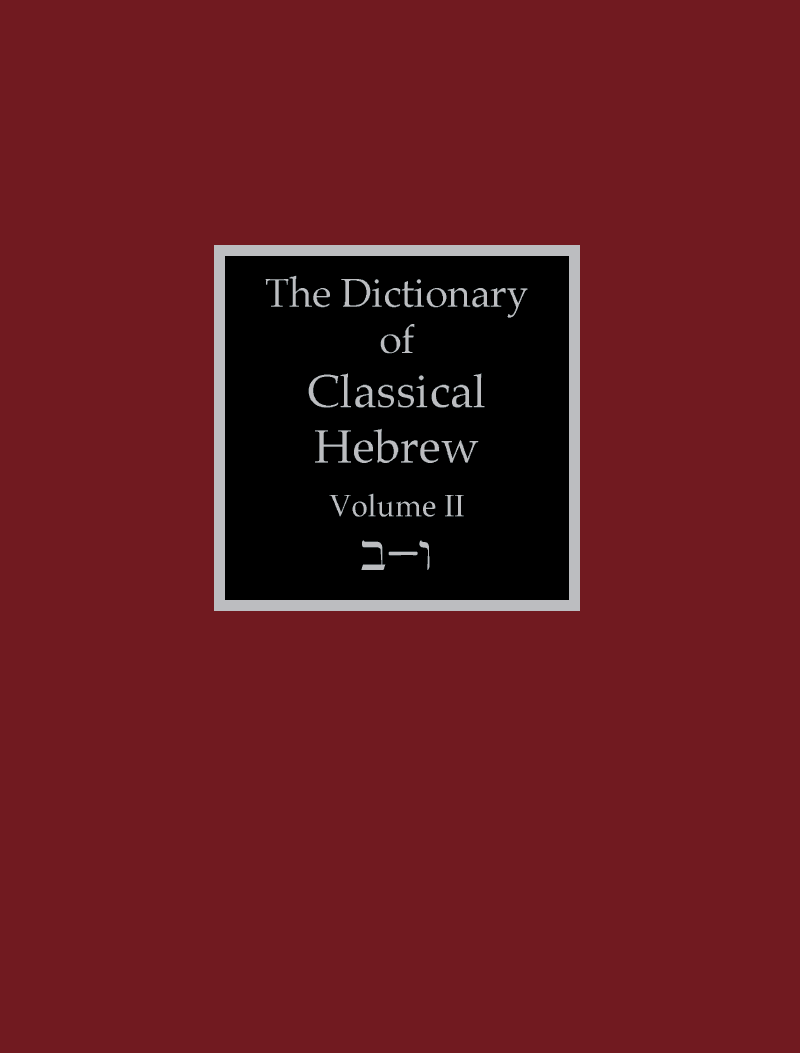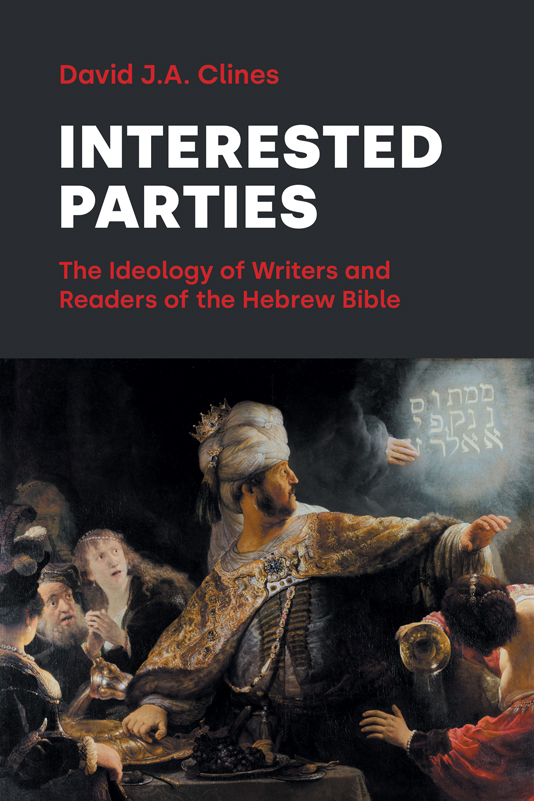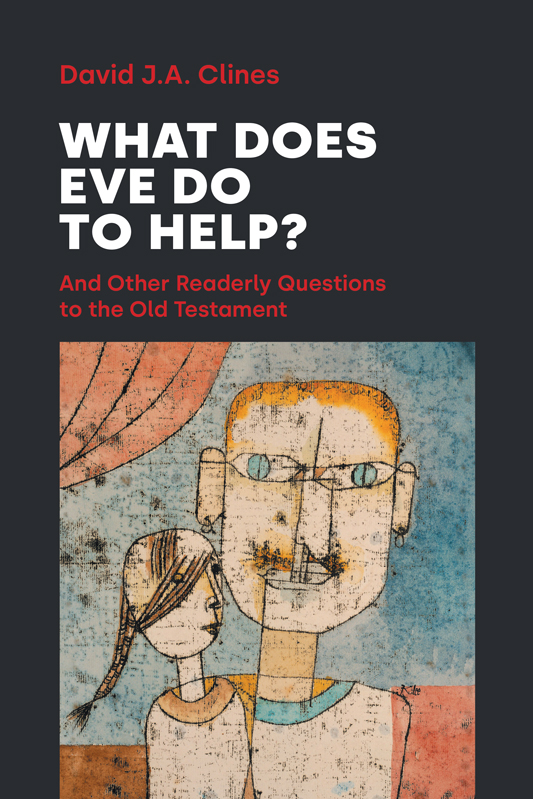Sexual Transgression in the Hebrew Bible
Published: Mar 2006
£60.00
The sex laws of the Hebrew Bible are well known, if not notorious. From them many have concluded that in ancient Israel adultery was a capital crime, that there was no conception of rape, that brides had to be virgins, and that women had no autonomy whatsoever. But was that the reality? Not if we broaden our horizon beyond the laws, argues Lipka, who focusses here on sexual transgression, that is, the trespass against sexual boundaries.
She finds three aspects of sexual transgression: it may be transgression against religious boundaries (sexual acts violating divine law), against communal boundaries (sexual acts violating the rights of another member of the community), or against personal boundaries (sexual acts imposed by force and/or violence). Transgressive sex is complicated.
But some conclusions are possible. (1) Though adultery was universally disapproved of, there was a wide variety of opinions on who was considered guilty, who was considered the offended party, who was punished, what the punishment was, and who should execute it. (2) There was indeed a conception of rape, with an understanding of its devastating emotional and psychological consequences for the victim. (3) Though virginity in brides was the norm, and young women were under a great deal of pressure to preserve their virginity, it was unrealistic for all men in ancient Israel to expect their wives to be virgins. (4) Women did not enjoy legal autonomy over their sexuality, yet they were not completely powerless; they had some degree of personal sexual autonomy, and some took the liberty of doing with their bodies as they pleased.
Sexual Transgression in the Hebrew Bible
£60.00
The sex laws of the Hebrew Bible are well known, if not notorious. From them many have concluded that in ancient Israel adultery was a capital crime, that there was no conception of rape, that brides had to be virgins, and that women had no autonomy whatsoever. But was that the reality? Not if we broaden our horizon beyond the laws, argues Lipka, who focusses here on sexual transgression, that is, the trespass against sexual boundaries.
She finds three aspects of sexual transgression: it may be transgression against religious boundaries (sexual acts violating divine law), against communal boundaries (sexual acts violating the rights of another member of the community), or against personal boundaries (sexual acts imposed by force and/or violence). Transgressive sex is complicated.
But some conclusions are possible. (1) Though adultery was universally disapproved of, there was a wide variety of opinions on who was considered guilty, who was considered the offended party, who was punished, what the punishment was, and who should execute it. (2) There was indeed a conception of rape, with an understanding of its devastating emotional and psychological consequences for the victim. (3) Though virginity in brides was the norm, and young women were under a great deal of pressure to preserve their virginity, it was unrealistic for all men in ancient Israel to expect their wives to be virgins. (4) Women did not enjoy legal autonomy over their sexuality, yet they were not completely powerless; they had some degree of personal sexual autonomy, and some took the liberty of doing with their bodies as they pleased.
Josiah’s Reform and Jeremiah’s Scroll: Historical Calamity and Prophetic Response
Published: Jan 2006
£50.00
This exciting new study of the prophet Jeremiah attributes to him a pivotal significance in the historical period of Josiah's reign.
He was, so Leuchter argues, one of the central agents of Josiah's propaganda machine and was intimately involved with the king's political agenda. Jeremiah, himself originally a member of the scribal school that composed the Deuteronomistic literature, encouraged the Shilonites of Anathoth to become active in Josiah's programme in the North following the waning of Assyrian power. Dismayed by the Shilonites' rejection of him and Josiah, and by the king's death at Megiddo, Jeremiah came to a radically new understanding of the divine purpose, encapsulated in the famous Temple sermon of Jeremiah 7 and evidenced in the prophet's debates with the political establishment in Jerusalem in the years that followed.
In his thoroughgoing historical reconstruction, Leuchter outlines a very specific sequence of events that took their rise from the Shilonite rejection of Deuteronomic policy, and on that basis carefully demarcates the texts that would have been included in Jeremiah's first scroll (the Urrolle ). Leuchter's monograph will make an important contribution to the study of the history and the literature of the late seventh century BCE.
Josiah’s Reform and Jeremiah’s Scroll: Historical Calamity and Prophetic Response
£50.00
This exciting new study of the prophet Jeremiah attributes to him a pivotal significance in the historical period of Josiah's reign.
He was, so Leuchter argues, one of the central agents of Josiah's propaganda machine and was intimately involved with the king's political agenda. Jeremiah, himself originally a member of the scribal school that composed the Deuteronomistic literature, encouraged the Shilonites of Anathoth to become active in Josiah's programme in the North following the waning of Assyrian power. Dismayed by the Shilonites' rejection of him and Josiah, and by the king's death at Megiddo, Jeremiah came to a radically new understanding of the divine purpose, encapsulated in the famous Temple sermon of Jeremiah 7 and evidenced in the prophet's debates with the political establishment in Jerusalem in the years that followed.
In his thoroughgoing historical reconstruction, Leuchter outlines a very specific sequence of events that took their rise from the Shilonite rejection of Deuteronomic policy, and on that basis carefully demarcates the texts that would have been included in Jeremiah's first scroll (the Urrolle ). Leuchter's monograph will make an important contribution to the study of the history and the literature of the late seventh century BCE.
The Older Testament: The Survival of Themes from the Ancient Royal Cult in Sectarian Judaism and Early Christianity
Published: July 2005
£35.00
The Older Testament is a radically new approach to many problems of both Old and New Testaments. It takes as a basis the theology of the book of Enoch, lost to western Christendom for many centuries, but here recognized as providing the most consistent set of clues to the nature of Israel's pre-exilic religion. Reformers and editors of the Second Temple period sought to remove from the biblical texts all traces of the older ways, which now survive only in the apparently bizarre themes and imagery of certain Pseudepigrapha.
Margaret Barker traces some of the ways in which the Deuteronomic standpoint came to dominate future readings of the Hebrew Bible as well as scholarly conceptions of Israel's religious development. Her reconstruction of the pre-Deuteronomic religion throws a startling light on much of the imagery of the New Testament and shows how closely the earlier Christian expectations were based upon the ancient royal cult in Jerusalem.
This book represents an important and original contribution to our understanding of Judaism and early Christianity.
The Older Testament: The Survival of Themes from the Ancient Royal Cult in Sectarian Judaism and Early Christianity
£35.00
The Older Testament is a radically new approach to many problems of both Old and New Testaments. It takes as a basis the theology of the book of Enoch, lost to western Christendom for many centuries, but here recognized as providing the most consistent set of clues to the nature of Israel's pre-exilic religion. Reformers and editors of the Second Temple period sought to remove from the biblical texts all traces of the older ways, which now survive only in the apparently bizarre themes and imagery of certain Pseudepigrapha.
Margaret Barker traces some of the ways in which the Deuteronomic standpoint came to dominate future readings of the Hebrew Bible as well as scholarly conceptions of Israel's religious development. Her reconstruction of the pre-Deuteronomic religion throws a startling light on much of the imagery of the New Testament and shows how closely the earlier Christian expectations were based upon the ancient royal cult in Jerusalem.
This book represents an important and original contribution to our understanding of Judaism and early Christianity.
The Dictionary of Classical Hebrew, Volume V Mem–Nun
Published: Aug 2001
£150.00
The Dictionary of Classical Hebrew is a completely new and innovative dictionary.
Unlike previous dictionaries, which have been dictionaries of biblical Hebrew, this is the first dictionary of the classical Hebrew language to include the Bible, Dead Sea Scrolls, and all the other known Hebrew inscriptions and manuscripts.
This Dictionary covers the period from the earliest times to 200 CE. It lists and analyses every occurrences of each Hebrew word that occurs in texts of that period, with an English translation of every Hebrew word and phrase cited.
Among its special features are: a list of the non-biblical texts cited (especially the Dead Sea Scrolls), a word frequency index for each letter of the alphabet, a substantial bibliography (from Volume 2 onward) and an English–Hebrew index in each volume.
The Dictionary of Classical Hebrew, Volume V Mem–Nun
£150.00
The Dictionary of Classical Hebrew is a completely new and innovative dictionary.
Unlike previous dictionaries, which have been dictionaries of biblical Hebrew, this is the first dictionary of the classical Hebrew language to include the Bible, Dead Sea Scrolls, and all the other known Hebrew inscriptions and manuscripts.
This Dictionary covers the period from the earliest times to 200 CE. It lists and analyses every occurrences of each Hebrew word that occurs in texts of that period, with an English translation of every Hebrew word and phrase cited.
Among its special features are: a list of the non-biblical texts cited (especially the Dead Sea Scrolls), a word frequency index for each letter of the alphabet, a substantial bibliography (from Volume 2 onward) and an English–Hebrew index in each volume.
The Dictionary of Classical Hebrew, Volume IV Yodh–Lamedh
Published: Aug 1998
£150.00
The Dictionary of Classical Hebrew is a completely new and innovative dictionary.
Unlike previous dictionaries, which have been dictionaries of biblical Hebrew, this is the first dictionary of the classical Hebrew language to include the Bible, Dead Sea Scrolls, and all the other known Hebrew inscriptions and manuscripts.
This Dictionary covers the period from the earliest times to 200 CE. It lists and analyses every occurrences of each Hebrew word that occurs in texts of that period, with an English translation of every Hebrew word and phrase cited.
Among its special features are: a list of the non-biblical texts cited (especially the Dead Sea Scrolls), a word frequency index for each letter of the alphabet, a substantial bibliography (from Volume 2 onward) and an English–Hebrew index in each volume.
The Dictionary of Classical Hebrew, Volume IV Yodh–Lamedh
£150.00
The Dictionary of Classical Hebrew is a completely new and innovative dictionary.
Unlike previous dictionaries, which have been dictionaries of biblical Hebrew, this is the first dictionary of the classical Hebrew language to include the Bible, Dead Sea Scrolls, and all the other known Hebrew inscriptions and manuscripts.
This Dictionary covers the period from the earliest times to 200 CE. It lists and analyses every occurrences of each Hebrew word that occurs in texts of that period, with an English translation of every Hebrew word and phrase cited.
Among its special features are: a list of the non-biblical texts cited (especially the Dead Sea Scrolls), a word frequency index for each letter of the alphabet, a substantial bibliography (from Volume 2 onward) and an English–Hebrew index in each volume.
The Dictionary of Classical Hebrew, Volume III Zayin–Teth
Published: Oct 1996
£150.00
The Dictionary of Classical Hebrew is a completely new and innovative dictionary.
Unlike previous dictionaries, which have been dictionaries of biblical Hebrew, this is the first dictionary of the classical Hebrew language to include the Bible, Dead Sea Scrolls, and all the other known Hebrew inscriptions and manuscripts.
This Dictionary covers the period from the earliest times to 200 CE. It lists and analyses every occurrences of each Hebrew word that occurs in texts of that period, with an English translation of every Hebrew word and phrase cited.
Among its special features are: a list of the non-biblical texts cited (especially the Dead Sea Scrolls), a word frequency index for each letter of the alphabet, a substantial bibliography (from Volume 2 onward) and an English–Hebrew index in each volume.
The Dictionary of Classical Hebrew, Volume III Zayin–Teth
£150.00
The Dictionary of Classical Hebrew is a completely new and innovative dictionary.
Unlike previous dictionaries, which have been dictionaries of biblical Hebrew, this is the first dictionary of the classical Hebrew language to include the Bible, Dead Sea Scrolls, and all the other known Hebrew inscriptions and manuscripts.
This Dictionary covers the period from the earliest times to 200 CE. It lists and analyses every occurrences of each Hebrew word that occurs in texts of that period, with an English translation of every Hebrew word and phrase cited.
Among its special features are: a list of the non-biblical texts cited (especially the Dead Sea Scrolls), a word frequency index for each letter of the alphabet, a substantial bibliography (from Volume 2 onward) and an English–Hebrew index in each volume.
The Dictionary of Classical Hebrew, Volume 2 Beth–Waw
Published: Aug 1995
£150.00
The Dictionary of Classical Hebrew is a completely new and innovative dictionary.
Unlike previous dictionaries, which have been dictionaries of biblical Hebrew, this is the first dictionary of the classical Hebrew language to include the Bible, Dead Sea Scrolls, and all the other known Hebrew inscriptions and manuscripts.
This Dictionary covers the period from the earliest times to 200 CE. It lists and analyses every occurrences of each Hebrew word that occurs in texts of that period, with an English translation of every Hebrew word and phrase cited.
Among its special features are: a list of the non-biblical texts cited (especially the Dead Sea Scrolls), a word frequency index for each letter of the alphabet, a substantial bibliography (from Volume 2 onward) and an English–Hebrew index in each volume.
The Dictionary of Classical Hebrew, Volume 2 Beth–Waw
£150.00
The Dictionary of Classical Hebrew is a completely new and innovative dictionary.
Unlike previous dictionaries, which have been dictionaries of biblical Hebrew, this is the first dictionary of the classical Hebrew language to include the Bible, Dead Sea Scrolls, and all the other known Hebrew inscriptions and manuscripts.
This Dictionary covers the period from the earliest times to 200 CE. It lists and analyses every occurrences of each Hebrew word that occurs in texts of that period, with an English translation of every Hebrew word and phrase cited.
Among its special features are: a list of the non-biblical texts cited (especially the Dead Sea Scrolls), a word frequency index for each letter of the alphabet, a substantial bibliography (from Volume 2 onward) and an English–Hebrew index in each volume.
The Dictionary of Classical Hebrew, Volume 1 Aleph
Published: Dec 1993
£150.00
The Dictionary of Classical Hebrew is a completely new and innovative dictionary.
Unlike previous dictionaries, which have been dictionaries of biblical Hebrew, this is the first dictionary of the classical Hebrew language to include the Bible, Dead Sea Scrolls, and all the other known Hebrew inscriptions and manuscripts.
This Dictionary covers the period from the earliest times to 200 CE. It lists and analyses every occurrences of each Hebrew word that occurs in texts of that period, with an English translation of every Hebrew word and phrase cited.
Among its special features are: a list of the non-biblical texts cited (especially the Dead Sea Scrolls), a word frequency index for each letter of the alphabet, a substantial bibliography (from Volume 2 onward) and an English–Hebrew index in each volume.
The Dictionary of Classical Hebrew, Volume 1 Aleph
£150.00
The Dictionary of Classical Hebrew is a completely new and innovative dictionary.
Unlike previous dictionaries, which have been dictionaries of biblical Hebrew, this is the first dictionary of the classical Hebrew language to include the Bible, Dead Sea Scrolls, and all the other known Hebrew inscriptions and manuscripts.
This Dictionary covers the period from the earliest times to 200 CE. It lists and analyses every occurrences of each Hebrew word that occurs in texts of that period, with an English translation of every Hebrew word and phrase cited.
Among its special features are: a list of the non-biblical texts cited (especially the Dead Sea Scrolls), a word frequency index for each letter of the alphabet, a substantial bibliography (from Volume 2 onward) and an English–Hebrew index in each volume.
Interested Parties: The Ideology of Writers and Readers of the Hebrew BIble
Price range: £17.50 through £50.00
There is a twin focus in this volume. The title of a keynote essay—‘Why Is There a Song of Songs, and What Does It Do to You If You Read It?’—hints at it. The focus is equally on the ideologies of the writers of the Hebrew Bible, who brought the text into being, and on the ideologies of its readers, who are being shaped by the text at the same moment that they are shaping it in their own image.
Uncovering the ideologies of writers are readers is the project of this book, calling for a step beyond the usual scholarly goal of understanding—to a practice of the art of critique.
Among the other chapters in this challenging book are:
• The Ten Commandments: Reading from Left to Right
• Metacommentating Amos
• Haggai’s Temple, Constructed, Deconstructed and Reconstructed
• David the Man: The Construction of Masculinity in the Hebrew Bible
• Psalm 2 and the MLF (Moabite Liberation Front)
• God in the Pentateuch: Reading against the Grain
This is a reprint of the original 1995 edition.
Interested Parties: The Ideology of Writers and Readers of the Hebrew BIble
Price range: £17.50 through £50.00
There is a twin focus in this volume. The title of a keynote essay—‘Why Is There a Song of Songs, and What Does It Do to You If You Read It?’—hints at it. The focus is equally on the ideologies of the writers of the Hebrew Bible, who brought the text into being, and on the ideologies of its readers, who are being shaped by the text at the same moment that they are shaping it in their own image.
Uncovering the ideologies of writers are readers is the project of this book, calling for a step beyond the usual scholarly goal of understanding—to a practice of the art of critique.
Among the other chapters in this challenging book are:
• The Ten Commandments: Reading from Left to Right
• Metacommentating Amos
• Haggai’s Temple, Constructed, Deconstructed and Reconstructed
• David the Man: The Construction of Masculinity in the Hebrew Bible
• Psalm 2 and the MLF (Moabite Liberation Front)
• God in the Pentateuch: Reading against the Grain
This is a reprint of the original 1995 edition.
What Does Eve Do to Help? And Other Readerly Questions to the Old Testament
£50.00
Readerly questions are raised when readers are explicitly and programmatically brought into the process of interpreting texts. Traditionally, the reader and readerly interest and identities have been screened out when we have set about interpreting texts, and we have set our sights on attaining an interpretation that should be as objective as possible.
Things are rather different now. Not only is quest for objective interpretation seen as chimaera, but the rewards of unabashed readerly interpretations that foreground the process of reading and the context of the reader have now been shown to be very well worth seeking. That reader-response approach characterizes this collection of six essays, prefaced by an introduction to reader-response criticism.
The essays for the most part read in their original form to meetings of the Society of Biblical Literature, are: What Does Eve Do To Help? and other Irredeemably Androcentric Orientations in Genesis 1-3; What Happens in Genesis; The Ancestor in Danger: But Not the Same Danger; The Old Testament Histories: A Reader's Guide; Deconstructing the Book of Job; and Nehemiah Memoir: The perils of Autobiography.
This volume is a reprint of the original 1990 edition.
What Does Eve Do to Help? And Other Readerly Questions to the Old Testament
£50.00
Readerly questions are raised when readers are explicitly and programmatically brought into the process of interpreting texts. Traditionally, the reader and readerly interest and identities have been screened out when we have set about interpreting texts, and we have set our sights on attaining an interpretation that should be as objective as possible.
Things are rather different now. Not only is quest for objective interpretation seen as chimaera, but the rewards of unabashed readerly interpretations that foreground the process of reading and the context of the reader have now been shown to be very well worth seeking. That reader-response approach characterizes this collection of six essays, prefaced by an introduction to reader-response criticism.
The essays for the most part read in their original form to meetings of the Society of Biblical Literature, are: What Does Eve Do To Help? and other Irredeemably Androcentric Orientations in Genesis 1-3; What Happens in Genesis; The Ancestor in Danger: But Not the Same Danger; The Old Testament Histories: A Reader's Guide; Deconstructing the Book of Job; and Nehemiah Memoir: The perils of Autobiography.
This volume is a reprint of the original 1990 edition.

